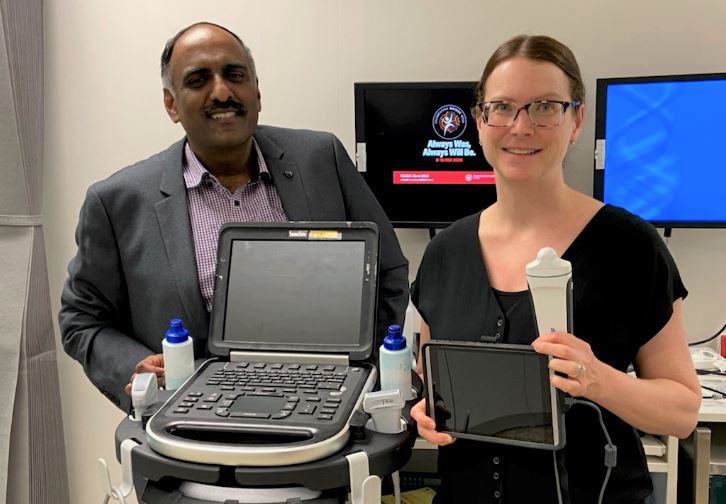
In a recent paper in Respiration, lead researchers Dr Sarah Newhouse and Dr Anand Rose, from the College of Medicine and Public Health, compared the two methods in using thoracic ultrasound for pleurocentesis, the test of the fluid in the lining of the lung.
Pleurocentesis is a commonly performed procedure worldwide which relies on ultrasound for increased patient safety.
Standard point-of-care (POC) ultrasound machines have been demonstrated to improve safety of procedures and are also used for examining the underlying lung for other common pathology including pneumonia in thoracic ultrasound.
The study compared the two methods’ ability to locate a safe site for pleurocentesis. Image quality of the two machines was also assessed.
“With the increase in use of this technology in the COVID-19 pandemic, it is important to recognise the strengths and limitations of the new, smaller ultrasound machines as image quality may not be as accurate as standard POC ultrasound, particularly for findings that rely on high quality ultrasound images including identification of pneumonia and more subtle findings,” the researchers found.
The study found UPHH ultrasound was able to identify a safe site for the procedure in 96.3% of patients. It also found the image quality was superior in the standard POC ultrasound, but this did not appear to impact on safe site identification.
Image quality was negatively impacted by increasing body mass index of study participants.
The paper, ‘Is bigger really better? Comparison of ultraportable handheld ultrasound with standard point of care ultrasound for evaluating safe site identification and image quality prior to pleurocentesis’ (2020) by SM Newhouse, TW Effing, BD Dougherty, JA D’Costa and A R Rose can be found online in Respiration. 99: 325-332 DOI: 10.1159/000505698

